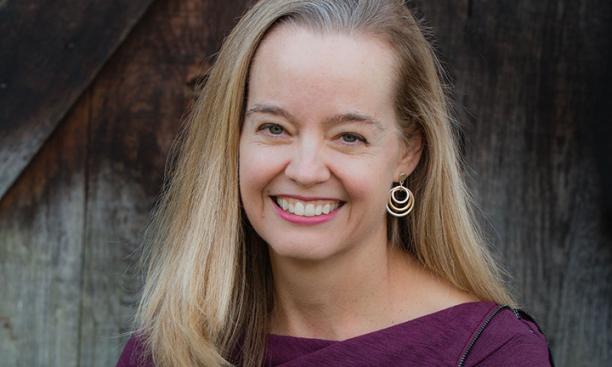
Stephanie Blackburn Freeth ’97 of Ann Arbor, Michigan, has dedicated much of her professional career to answering fundamental questions about human behavior — why do people choose the jobs they do, or the people they associate with?
Today, Freeth is a leadership coach, certified by a company that works with personality typing. But she got her start in nonprofits, beginning when she was selected for a Project ’55 (AlumniCorps) fellowship with an organization near Washington, D.C. This required her to develop skills related to running a nonprofit, including fundraising and working with the board.
“This experience sparked my interest in what makes organizations cultures healthy or dysfunctional,” she says.
After a position with the Washington Opera, Freeth earned an MBA from the Kellogg School of Management at Northwestern University, concentrating on strategy, marketing, and organizational behavior.
As an English major at Princeton, Freeth says she learned the art of critical thinking and effective communication, but it was her later experiences that broadened her thinking.
“My undergrad work was in the domain of the intellect (IQ). In my work as a coach, I have added two other centers of intelligence: emotional (EQ) and body (BQ) intelligence. I find that so many people could benefit from awareness and training in navigating their own emotional and interior landscape.”
In 2014 Freeth started her own consulting business, mostly doing strategic planning work with medium and large-size businesses. But in 2019 she decided to take a new approach.
“I was dissatisfied with traditional strategic planning. I was thinking ‘There’s got to be a better way for people to relate to each other,’” she says. And she noticed that potential clients seeking strategic planning services needed something else first: “to build a high-trust, low-drama, and high-learning culture before jumping into long-range strategic issues.
In 2019 she discovered the Conscious Leadership Group, and eventually she earned its certification. Freeth compares the company’s Enneagram personality typing tool to an iceberg, in that it shows individuals’ submerged fears and anxieties, and how the motivations for what we do are built on top of those fears.
“At the surface, you can see the personalities and behaviors that emerge,” she says. “Hidden underneath the water are the defense mechanisms and personality structures that protect a core fear.”
Her work with clients begins by identifying each individual’s type and then determining how people of divergent types can effectively function together. In cohorts, she coaches team members to look inward to “be vulnerable, question their beliefs, and get messy,” and in interactive workshops she helps teams lower drama and build trust.
The Enneagram’s purpose is not to pigeonhole an individual, but to build healthy connections with people who are both the same and different from us, she says. “We usually have one type (on the Enneagram) for life. We can get healthier within our type, by cultivating connections to different types.”
